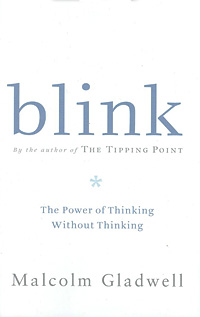Self-deception proves itself to be
more powerful than deception
The war in Iraq is now four years old. It has cost more than 3,000 American lives and has run up a tab of $200 million a day, or $73 billion a year, since it began. That’s a substantial investment. (continue reading…)
read or write comments (8)
After a paroxysm of racial viciousness at the Laugh Factory Friday night, November 17, 2006, Michael Richards, the 57-year old comedian who played Kramer on Seinfeld, explained to David Letterman and his Late Night audience the following Monday, after a barrage of negative publicity: “I’m not a racist. That’s what’s so insane about this.” (continue reading…)
read or write comments (6)
Why do people see the Virgin Mary on cheese sandwiches or hear demonic lyrics in “Stairway to Heaven”? Using video, images and music, professional skeptic Michael Shermer explores these and other phenomena, including UFOs and alien sightings. He offers cognitive context: In the absence of sound science, incomplete information can combine with the power of suggestion (helping us hear those Satanic lyrics in Led Zeppelin). In fact, he says, humans tend to convince ourselves to believe: We overvalue the “hits” that support our beliefs, and discount the more numerous “misses.”
read or write comments (3)
Science only adds to our appreciation for poetic beauty and experiences of emotional depth
Nineteenth-century English poet John Keats once bemoaned that Isaac Newton had “Destroyed the poetry of the rainbow by reducing it to a prism.” Natural philosophy, he lamented, “Will clip an Angel’s wings/Conquer all mysteries by rule and line/Empty the haunted air, and gnomed mine/Unweave a rainbow.”
Does a scientific explanation for any given phenomenon diminish its beauty or its ability to inspire poetry and emotional experiences? I think not. Science and aesthetics are complementary, not conflicting; additive, not detractive. I am nearly moved to tears, for example, when I observe through my small telescope the fuzzy little patch of light that is the Andromeda galaxy. It is not just because it is lovely, but because I also understand that the photons of light landing on my retina left Andromeda 2.9 million years ago, when our ancestors were tiny-brained hominids. I am doubly stirred because it was not until 1923 that astronomer Edwin Hubble, using the 100-inch telescope on Mount Wilson in the hills just above my home in Los Angeles, deduced that this “nebula” was actually a distant extragalactic stellar system of immense size. He subsequently discovered that the light from most galaxies is shifted toward the red end of the electromagnetic spectrum (literally unweaving a rainbow of colors), meaning that the universe is expanding away from its explosive beginning. That is some aesthetic science. (continue reading…)
Comments Off on Unweaving the Heart
A review of Malcolm Gladwell’s Blink: The Power of Thinking without Thinking.
Anyone who does a lot of public speaking knows there are certain questions that inevitably arise from the audience in a Q&A session. In my case, lecturing on pseudoscience and the paranormal, I am almost always asked: (continue reading…)
read or write comments (4)




